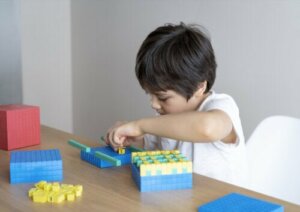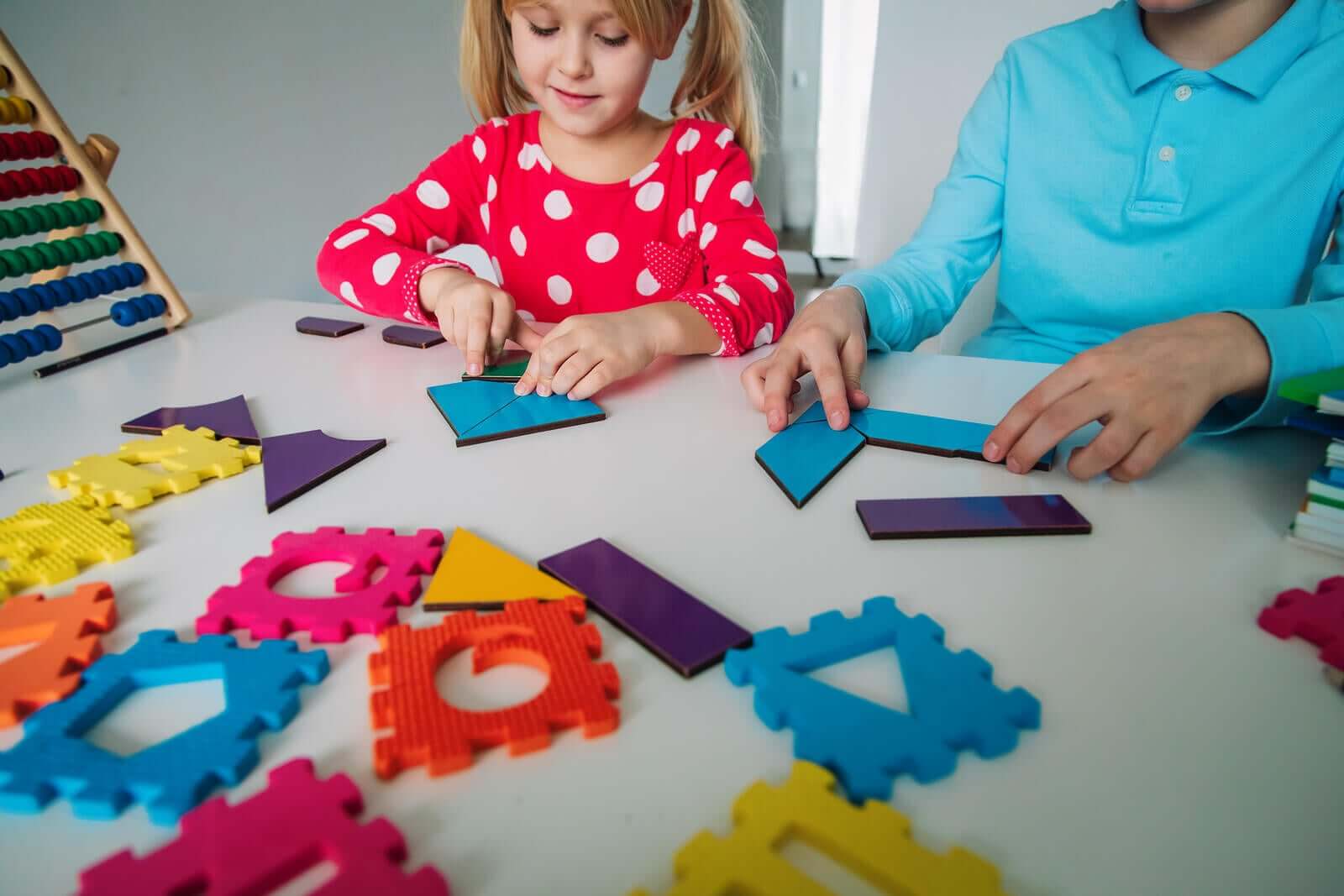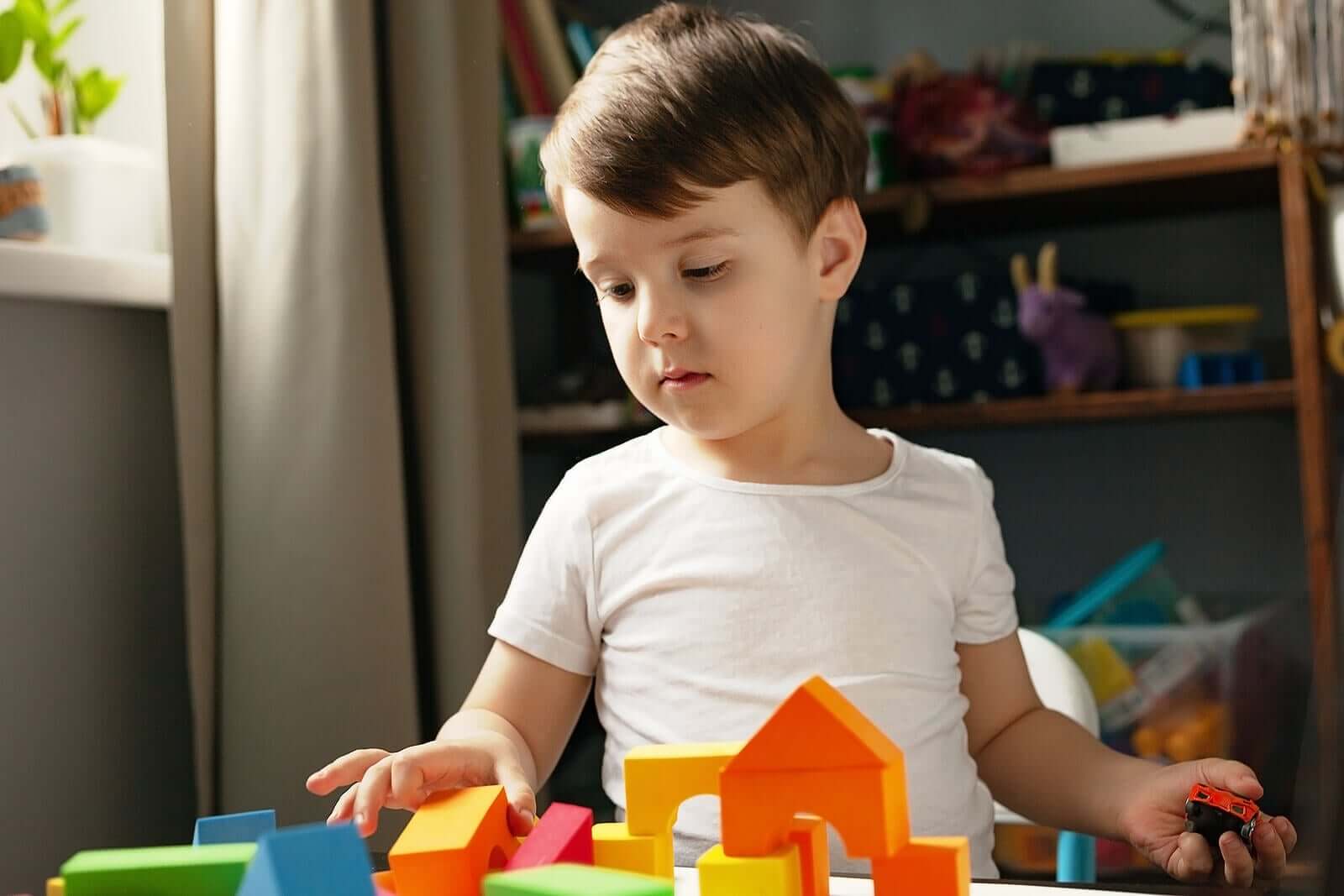How Do Children Learn Math Skills?

While still infants, children begin to develop their math skills by exploring their environment. This same process continues into their preschool years. By the time they begin to learn formal math skills in first grade, the foundation for success is already in place.
What’s early math?
Early math refers to math concepts and skills that a child develops informally during the early years. We also know it as pre-math or early arithmetic skills. It’s important for little ones to learn and develop early math skills first before trying to introduce concepts that are too advanced.
When you want to introduce your child to math, you may immediately think about numbers and try to teach your little one how to count, recognize numbers, and add or subtract. However, these are really some of the more advanced early math skills that you shouldn’t rush to teach. It’s important to first understand how children learn math concepts.

How children learn math skills
The three stages of learning any mathematical concept are concrete, pictorial, and abstract. We’ll now discuss the three stages so that you can better understand them and understand what stage your children are in.
The concrete stage
During the concrete stage, children need to physically experience a concept. They need to develop an understanding of an element by holding a block, for example. By playing with concrete objects, children form the concept that there can be one object, several, less, more, etc.
Many mathematical processes take place as a child builds a block tower with a friend. For example, they can learn concepts such as: more, less, one more, not enough, how many, many, less, take away, and add on. Children compare objects and learn that they can be assigned a value.
The pictorial stage
In the pictorial stage, which follows the concrete stage, children can see an image of objects and understand that this image represents real objects. For example, a child may look at a drawing and understand that the 4 leaves represent 4 real leaves.
Later, they can look at a die with 4 points and assign the value 4, and know that the points could hypothetically represent any object. Then, they can add the 4 points on one die to the 3 points on the other and say that there are 7 points in all.
The abstract stage
This is the final stage of understanding a mathematical concept. It means that a child can look at a sum, for example, 4 + 3 , written with numerical symbols, and add them up without concrete objects or images. The child has matured enough to understand that symbols 4 and 3 represent a series of objects to be added.
What stage are preschoolers in?
Preschoolers are mostly at the concrete stage. In fact, before third grade, any self-respecting teacher will introduce a new concept in a concrete way before moving on to books or worksheets with problems to solve.
When children understand a concept in a concrete way, it’s much easier to solve abstract problems. This means that, in the preschool years, trying to pressure a child to count pictures of objects or understand the value of number symbols is premature and will cause frustration.
You may want to expose your child to numbers (e.g., playing with wooden numbers) or rhymes that teach them to count. But don’t expect your child to understand the value of these numbers yet.
How do you teach math skills to preschoolers?
The best way to teach math skills to preschoolers is through their primary means of learning, which is through play. Play is the way preschoolers should learn absolutely everything.
This means that, during these early years, children don’t need formal lessons, activity sheets, and workbooks. In fact, they don’t need anything that looks more like “real work.”

This may seem confusing, since there are many formal programs and workbooks available for parents of preschoolers. This makes parents feel like they should be doing more and preparing their children for school with more formal activities.
The preschool stage is a time for informal learning. When your child has adequate informal learning through play, formal learning naturally becomes easier when they’re ready.
Learning math skills through play
When a child has inadequate learning through play and too many forced formal skills, they suffer later in school when the gaps begin to show and it becomes evident that fundamental skills are missing.
Adapt play to your child’s abilities and playful interests. In this sense, it’s worth dedicating more time on informal learning through games and activities, for example:
- Playing with shapes.
- Playing with blocks.
- Doing puzzles.
- Learning to sing songs.
- Counting in games.
- Making playdough numbers.
- Playing with objects.
With this information, you can better understand how your children learn math skills. To be able to help in the learning of all the concepts, it’s always important to start with informal learning based on play.
While still infants, children begin to develop their math skills by exploring their environment. This same process continues into their preschool years. By the time they begin to learn formal math skills in first grade, the foundation for success is already in place.
What’s early math?
Early math refers to math concepts and skills that a child develops informally during the early years. We also know it as pre-math or early arithmetic skills. It’s important for little ones to learn and develop early math skills first before trying to introduce concepts that are too advanced.
When you want to introduce your child to math, you may immediately think about numbers and try to teach your little one how to count, recognize numbers, and add or subtract. However, these are really some of the more advanced early math skills that you shouldn’t rush to teach. It’s important to first understand how children learn math concepts.

How children learn math skills
The three stages of learning any mathematical concept are concrete, pictorial, and abstract. We’ll now discuss the three stages so that you can better understand them and understand what stage your children are in.
The concrete stage
During the concrete stage, children need to physically experience a concept. They need to develop an understanding of an element by holding a block, for example. By playing with concrete objects, children form the concept that there can be one object, several, less, more, etc.
Many mathematical processes take place as a child builds a block tower with a friend. For example, they can learn concepts such as: more, less, one more, not enough, how many, many, less, take away, and add on. Children compare objects and learn that they can be assigned a value.
The pictorial stage
In the pictorial stage, which follows the concrete stage, children can see an image of objects and understand that this image represents real objects. For example, a child may look at a drawing and understand that the 4 leaves represent 4 real leaves.
Later, they can look at a die with 4 points and assign the value 4, and know that the points could hypothetically represent any object. Then, they can add the 4 points on one die to the 3 points on the other and say that there are 7 points in all.
The abstract stage
This is the final stage of understanding a mathematical concept. It means that a child can look at a sum, for example, 4 + 3 , written with numerical symbols, and add them up without concrete objects or images. The child has matured enough to understand that symbols 4 and 3 represent a series of objects to be added.
What stage are preschoolers in?
Preschoolers are mostly at the concrete stage. In fact, before third grade, any self-respecting teacher will introduce a new concept in a concrete way before moving on to books or worksheets with problems to solve.
When children understand a concept in a concrete way, it’s much easier to solve abstract problems. This means that, in the preschool years, trying to pressure a child to count pictures of objects or understand the value of number symbols is premature and will cause frustration.
You may want to expose your child to numbers (e.g., playing with wooden numbers) or rhymes that teach them to count. But don’t expect your child to understand the value of these numbers yet.
How do you teach math skills to preschoolers?
The best way to teach math skills to preschoolers is through their primary means of learning, which is through play. Play is the way preschoolers should learn absolutely everything.
This means that, during these early years, children don’t need formal lessons, activity sheets, and workbooks. In fact, they don’t need anything that looks more like “real work.”

This may seem confusing, since there are many formal programs and workbooks available for parents of preschoolers. This makes parents feel like they should be doing more and preparing their children for school with more formal activities.
The preschool stage is a time for informal learning. When your child has adequate informal learning through play, formal learning naturally becomes easier when they’re ready.
Learning math skills through play
When a child has inadequate learning through play and too many forced formal skills, they suffer later in school when the gaps begin to show and it becomes evident that fundamental skills are missing.
Adapt play to your child’s abilities and playful interests. In this sense, it’s worth dedicating more time on informal learning through games and activities, for example:
- Playing with shapes.
- Playing with blocks.
- Doing puzzles.
- Learning to sing songs.
- Counting in games.
- Making playdough numbers.
- Playing with objects.
With this information, you can better understand how your children learn math skills. To be able to help in the learning of all the concepts, it’s always important to start with informal learning based on play.
All cited sources were thoroughly reviewed by our team to ensure their quality, reliability, currency, and validity. The bibliography of this article was considered reliable and of academic or scientific accuracy.
- Goldsmith, M. (2013) Matemática mente. Editorial: SM
This text is provided for informational purposes only and does not replace consultation with a professional. If in doubt, consult your specialist.








